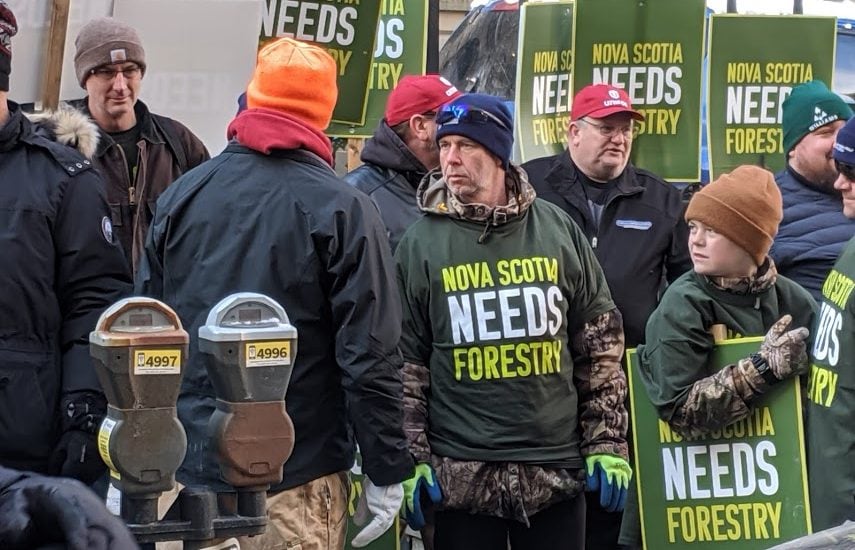
KJIPUKTUK (Halifax) – This Friday the Nova Scotia Federation of Labour (NSFL) is presenting a panel discussion and forum to build closer ties among environmentalists, labour activists, Indigenous land defenders and other activists.
“We organized this panel in the hope that people of all walks of life will take a look at the big picture and understand that we are all fighting the one percent. We need to do some critical thinking about how we can work together,” says Danny Cavanagh, president of the NSFL.
“We must protect workers, but we can’t look at an issue and just worry about jobs while allowing environmental racism and environmental degradation to continue,” Cavanagh says. “This is about how to have that discussion without becoming divisive.”
Friday’s panel includes Mary Shortall, president of the Newfoundland and Labrador Federation of Labour, and Dr. Sherry Pictou, a Mi’kmaw woman from L’sɨtkuk (Bear River First Nation) who teaches at Mount St, Vincent University.
See also: Weekend video. In defense of our treaties
Author and journalist Silver Donald Cameron will also speak. These days the main focus of Cameron’s journalism is a website called the Green Interview that features in depth video interviews with environmental thinkers and activists.
“As we are going through these broad environmental transitions people sometimes find themselves on opposite sides, even though they should be on the same side,” says Cameron.
“So the question becomes, how do we all get onto the same page. There’s got to be a way, because we’re all basically fighting the same exploitation of the environment, the same exploitation of people, the disappearance of jobs, there’s a whole range of issues that we share.”
That includes paying attention to community economic development, Cameron argues.
“We’re already seeing these huge transformative changes that are forced upon us. That’s the point I would strongly make to the union movement, that you cannot counter the forces of history, the fossil fuel industries are going down. It may take a while to do it, but these days are really gone. To me the missing piece is that there must be some kind of an agreement on how to replace those jobs.”
Cameron points to the emergence of alliances between settlers and Indigenous people as especially significant. “The success of the anti-fracking campaign in New Brunswick, in Elsipogtog, was to a large extent due to the coalition of French settlers, British settlers and First Nations,” he says.
Getting unions to engage in these discussions and this kind of coalition building is crucial, Cameron believes, and he is excited to be a part of it,
“I hope it will be one of these events that in retrospect will prove to be a really important occasion. I can’t recall any large public event where these issues have been discussed before, and I hope this starts a discussion that galvanizes all the parties.”
See also: The power–politics of pulp and paper: Health, environment and work in Pictou County
The Halifax panel, A People’s Coalition for Justice and Survival, is scheduled for Friday February 28, 7:30 PM, at the Westin Hotel. A similar panel will take place in Sydney, Cape Breton, on April 7th. Events in Bridgewater and New Glasgow are in the planning stages.
With a special thanks to our generous donors who make publication of the Nova Scotia Advocate possible.
Subscribe to the Nova Scotia Advocate weekly digest and never miss an article again. It’s free!




Thank you